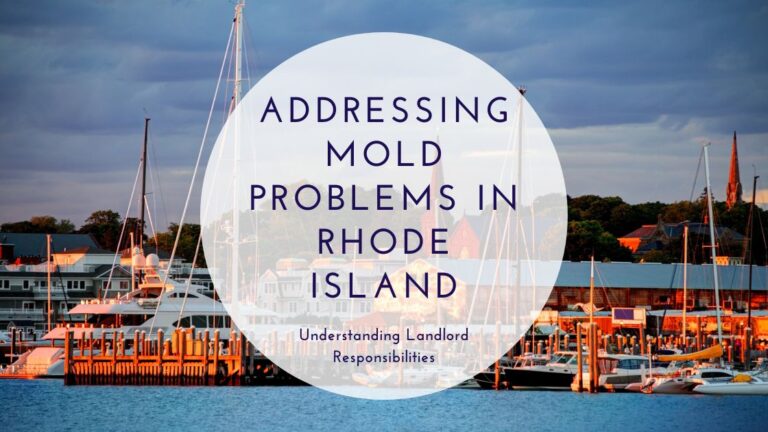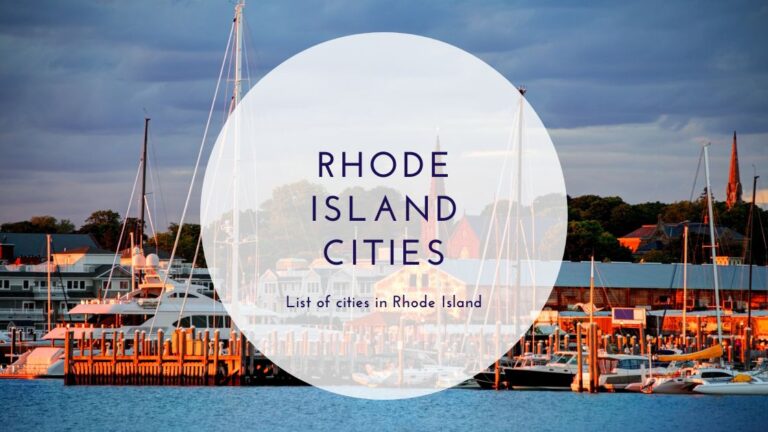Nestled in the New England region of the United States, Rhode Island may be the smallest state in the country, but it is abundant in charm, history, and natural beauty. Despite its size, it packs a big punch with its stunning coastline, vibrant cities, rich history, and unique culture. Let’s delve into the intricacies that make Rhode Island an enticing place to visit or call home.
Geography and Climate
Rhode Island, fondly known as the Ocean State, is flanked by Connecticut to the west and Massachusetts to the north and east. With over 400 miles of coastline dotted with scenic bays and inlets, it’s a haven for beach lovers. The terrain is a diverse blend of lowlands and rolling hills, with the highest point being Jerimoth Hill at a modest 812 feet. The climate features four distinct seasons, with hot summers, vibrant autumns, snowy winters, and pleasant springs.
History
Rhode Island’s history stretches back thousands of years, beginning with the Native American tribes that originally inhabited the area. It later became one of the original thirteen colonies, gaining notoriety as a hub for religious freedom under the leadership of Roger Williams. The state played pivotal roles in the American Revolution and Industrial Revolution, leaving an indelible mark on the country’s history.
Economy
Despite its size, Rhode Island boasts a robust economy with diverse industries. The healthcare and education sectors are significant employers, with leading institutions like Brown University and Lifespan Health System. The state also benefits from tourism, manufacturing, and a growing tech industry.
Culture and Lifestyle
Rhode Island offers a blend of New England charm and urban sophistication. The state boasts a thriving food scene — from delicious seafood, with a special shout-out to clam chowder and stuffies, to international cuisine. The arts are thriving here, with galleries, music festivals, and theaters aplenty. Outdoor activities are popular, ranging from sailing to hiking, all contributing to a relaxed, community-focused lifestyle.
Major Cities and Towns
Providence, the capital city, offers a mix of cultural institutions, educational prowess, and culinary delights. Newport, known for its grand mansions and vibrant sailing scene, is a jewel in the state’s crown. Other notable towns include Warwick, with its plentiful parks and marinas, and the picturesque beach town of Narragansett.
Points of Interest
Rhode Island is teeming with landmarks and attractions. The Breakers Mansion in Newport is a peek into the opulence of the Gilded Age. The Cliff Walk offers stunning ocean vistas. Block Island invites visitors to explore its beaches, lighthouses, and nature reserves. The Roger Williams Park Zoo in Providence is an exciting day out for families, while Newport Harbor is a hub for sailing enthusiasts.
Education
Rhode Island is home to renowned educational institutions. Brown University, an Ivy League institution, and the Rhode Island School of Design, one of the best art and design schools in the world, are located in Providence. The state also has a strong public school system and several excellent community colleges.
Transportation
Rhode Island’s compact size makes transportation a breeze. An extensive network of highways and roads provides easy travel within the state. The Rhode Island Public Transit Authority operates bus routes that reach most areas. TF Green Airport offers flights to many major cities, while ferries provide transport to the coastal islands.
Dealing with Mold: Rhode Island’s Approach to Remediation
Given its coastal climate, Rhode Island residents are no strangers to dealing with humidity and, unfortunately, the mold that can sometimes accompany it. Mold is a common issue in many homes and businesses, particularly in older buildings or those with insufficient ventilation. Thankfully, the state’s commitment to health and safety extends to effective mold remediation.
In Rhode Island, numerous licensed professionals provide mold remediation services. These experts use advanced equipment and techniques to identify mold sources, remove contaminated materials, and restore indoor air quality. They also provide valuable guidance on preventing future mold growth.
Rhode Island also maintains regulations that ensure mold remediation is done safely and effectively. This includes guidelines for handling mold-impacted materials, appropriate use of personal protective equipment, and standards for final clearance inspections after remediation.
Homeowners can protect their homes by ensuring good ventilation, promptly repairing leaks, and controlling humidity levels. It’s advisable to contact a mold remediation professional at the first sign of mold in your home or business, as swift action can prevent further damage and potential health risks.
Moreover, a number of local services, many of them available around the clock, can assist residents in the event of water damage, which often leads to mold if not properly addressed. Services typically include water extraction, drying, dehumidification, and disinfection. By addressing water damage promptly, Rhode Island residents can prevent the onset of mold and maintain the structural integrity and safety of their homes.
So, whether you’re visiting or settling down, rest assured that Rhode Island takes indoor air quality seriously and offers a wealth of resources for mold remediation and prevention. It’s just another way this small but mighty state ensures a high quality of life for all who come here.
Closing Thoughts
Rhode Island, though small in size, is a state full of surprises. With its rich history, stunning landscapes, vibrant cities, and welcoming communities, it offers a quality of life that’s hard to match. Whether you’re considering a visit or looking to make Rhode Island your home, we’re confident you’ll fall in love with the Ocean State’s unique charm.






